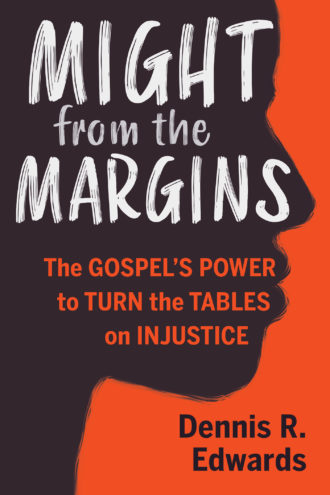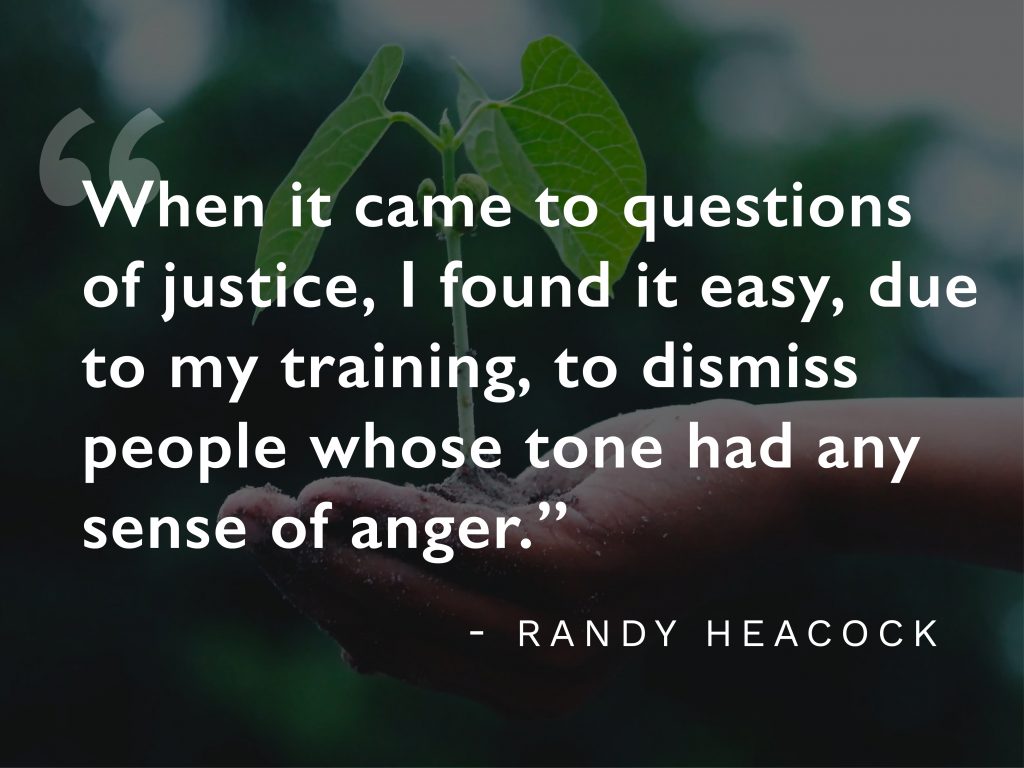Besides being one of my favorite movies, White Man Can’t Jump accurately describes my reality. Throughout my life, I have known what it is to be leaping-impaired. When I see people who can leap, hang, and glide, as if floating in air, I certainly know their reality is far different than my own.
In a similar way, I have learned that others who do not share my skin color often experience a different reality than me in school, work, faith community, and the world at large.

In his book, Might from the Margins, Rev. Dr. Dennis Edwards invites people of all races to embrace the gospel’s power to transform humanity. From the very first page, Edwards shares openly about his experience of being marginalized and treated unjustly, yet prophetically proclaims that God’s power is made known out of such experiences.
In some ways, Jesus began his life as a marginalized person born to unimpressive parents, who identified with people under the yoke of Roman oppression, hung out and ate with social outcasts, and died at the hands of the keepers of societal status quo. Yet the movement Jesus began, with marginalized people and a unique understanding of power, transformed an empire.
Edwards rightly calls all people to live this robust Gospel as a way to both experience and share the salvation given in Jesus. There is no need to wait for permission or support. Jesus has already commanded and empowered his followers to hunger and thirst for righteousness.
Edwards’ chapter on the power of anger was especially insightful. I was raised in what I would consider a rather typical white evangelical home. While I am forever grateful for this upbringing, I learned a strong bias against the idea of anger having any redeemable qualities. Christians should control their emotions at all times. Doubt, fear, and especially anger were tools of the devil. People who expressed anger in any way were discounted as being less-than-Christian and certainly not worthy of us listening to their concerns.

When it came to questions of justice, I found it easy, due to my training, to dismiss people whose tone had any sense of anger. It took years of unlearning and gaining a realistic understanding of Jesus’ own anger before I could see how anger can fuel an appropriate Christian response. The apostle Paul certainly teaches and models this very approach.
Although each chapter in Edwards’ book is worthwhile, the chapter on the power of worship is especially valuable. Edwards articulates a needed correction to the goal and purpose of worship. He proclaims that worship is a way of life, not an event. Based on Romans 12, Edwards declares, “Worship is about following Jesus in order to understand and practice love for God and love for other people” (p. 133). It is only when we see worship as a way of life, and not an event, that we begin to allow the Gospel to penetrate our entire being.
Might from the Margins is an invitation to discipleship. With a strong biblical foundation and a breadth of personal wisdom, Dr. Edwards shares his pastoral heart for all people to more closely follow Jesus Christ. With rich historical context and examples from lesser-known writers, this book exposed this limited white man to many more things than just my poor leaping ability … all while extending an invitation to a fuller, more hopeful future. For this, I am incredibly grateful.
Editor’s Note: There is a study guide, published by Herald Press, that accompanies Might from the Margins, available for free.
The opinions expressed in articles posted on Mosaic’s website are those of the author and may not reflect the official policy of Mosaic Conference. Mosaic is a large conference, crossing ethnicities, geographies, generations, theologies, and politics. Each person can only speak for themselves; no one can represent “the conference.” May God give us the grace to hear what the Spirit is speaking to us through people with whom we disagree and the humility and courage to love one another even when those disagreements can’t be bridged.
